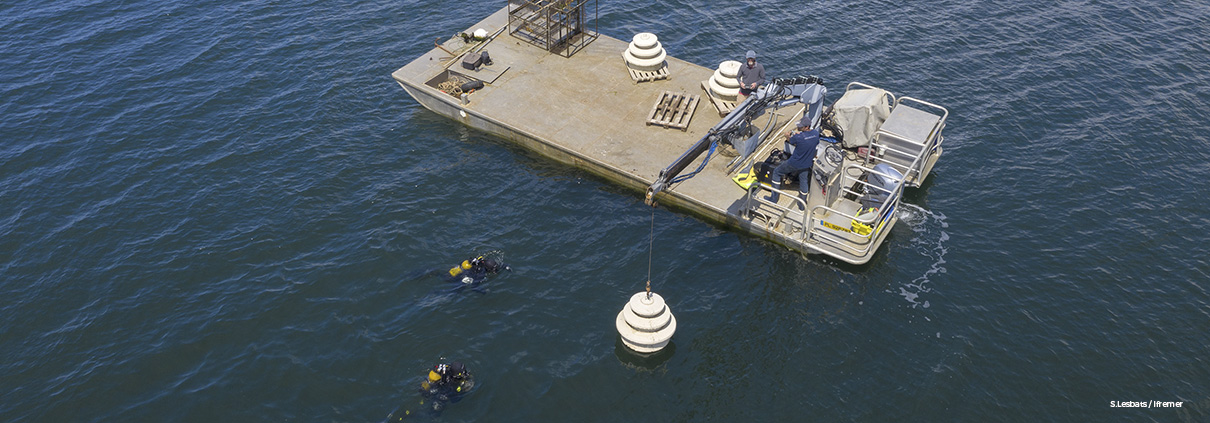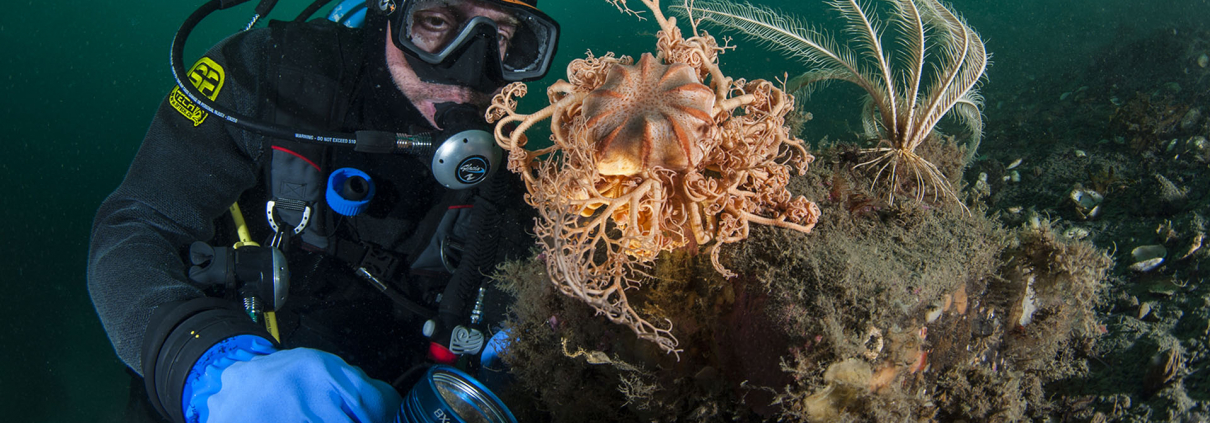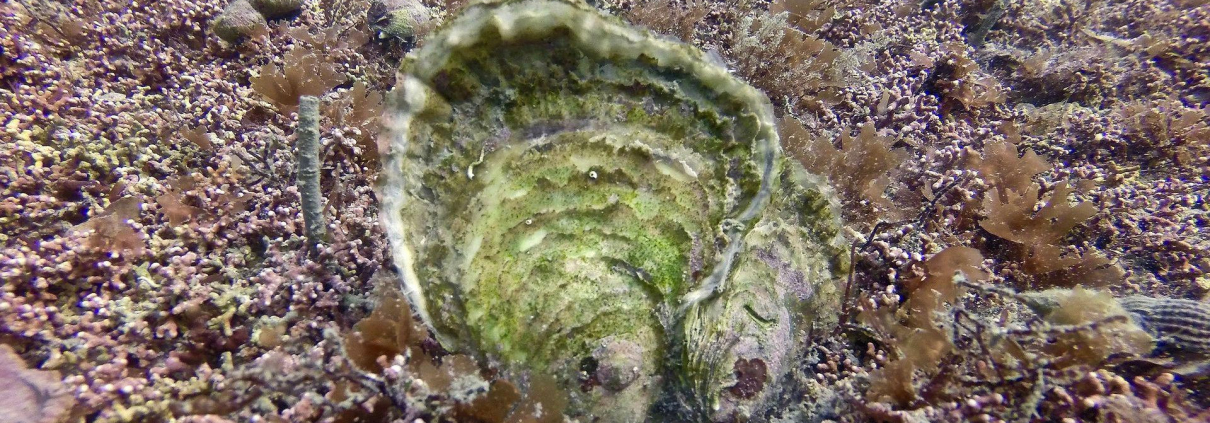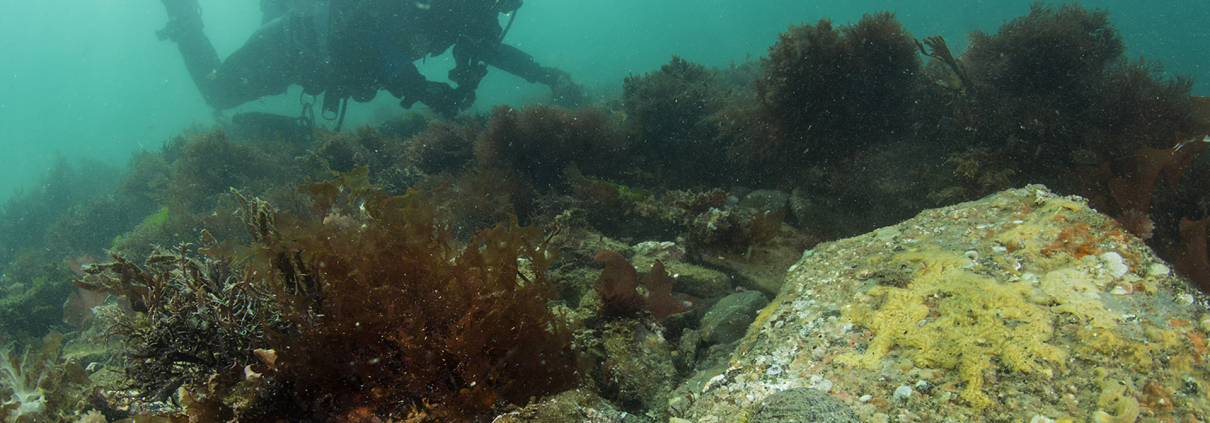The flat oyster: a heritage species to be preserved
Originally present along the entire European coastline, the flat oyster, the only oyster native to Europe, formed very dense populations (called oyster beds) creating mini-underwater reefs, comparable to coral reefs in terms of biodiversity. Highly overexploited in the 19th century, then victim of several diseases and predators in the 20th, the species is endangered in the 21st century and with it all the biodiversity it shelters. For a year now, the FOREVER project (“Flat Oyster REcoVERy”) has been working on the ecological restoration of this species in Brittany. One of the actions of this pioneering project consists in designing and deploying artificial reefs specially designed to facilitate the establishment, development and protection of young flat oysters. In early summer 2019, these very first reefs are being deployed in the Rade de Brest and Baie de Quiberon. To be continued…
Find out more about the FOREVER project and other European projects for the conservation and restoration of flat oysters? https://noraeurope.eu and have a look at this article:
Pogoda, B., Brown, J., Hancock, B., Preston, J., Pouvreau, S., Kamermans, P., Sanderson, W., and von Nordheim, H. 2019. The Native Oyster Restoration Alliance (NORA) and the Berlin Oyster Recommendation: bringing back a key ecosystem engineer by developing and supporting best practice in Europe. Aquat. Living Resour. 32: 13. doi:10.1051/alr/2019012.
In open access via this link.
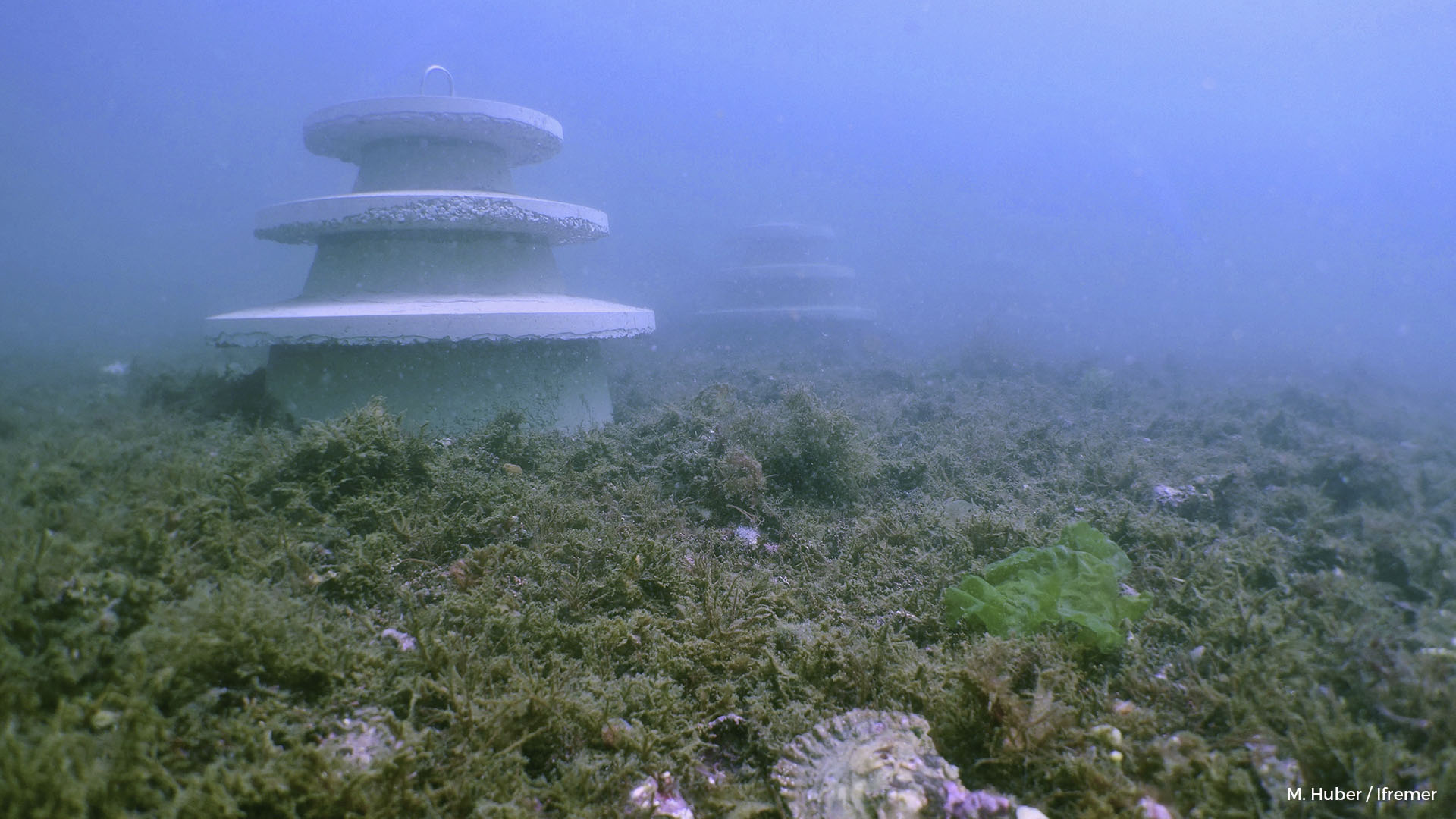
Projet Forever
For a year now, the FOREVER project has been working on the ecological restoration of this species in Brittany.

